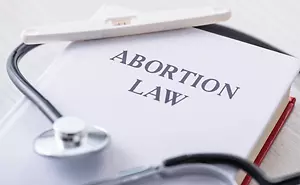Recent Posts
Popular Categories
Contributors
- Partner
- Associate
Archives
In November of 2023, the Intermediate Court of Appeals of West Virginia (“ICA”) found that urine collection during a random, employer-mandated drug screening was not “health care” under the West Virginia Medical Professional Liability Act (“MPLA”). The ICA’s decision, albeit limited by the facts of the case, represents a slight departure in the trend of West Virginia courts broadly defining “health care” under the MPLA. It remains to be seen whether the nuances of this analysis will affect other healthcare providers facing the prospect of litigation for ...
It seems that clinical laboratories are under more scrutiny now than ever before. Whether it is the testing for COVID-19 performed during the public health emergency or the urine drug screens performed as part of patient compliance monitoring for pain management and substance use disorder treatment programs or just routine panels ordered by primary care providers, an audit is going to come. And, the burden has never been heavier on laboratory providers to establish that they have an effective corporate compliance program to ensure the provider is not engaging in practices deemed to ...
The 21st Century Cures Act Final Rule Information Blocking Provision became active on April 5, 2021. “Information blocking” is a term used to describe a situation where a patient struggles to gain timely access to protected health information (“PHI”). While patient rights to access PHI are established by the Health Insurance Portability and Accountability Act of 1996 (“HIPAA”), patient complaints of information blocking are being addressed by – and have become a major priority of - the Office of the National Coordinator for Health Information Technology ...
When you strip away the partisan politics and individual religious beliefs, abortion ultimately is a health care issue. And, in light of the United States Supreme Court’s recent dismantling of Roe v. Wade, there may be no health care issue that is more confusing than that of the legal status of abortion, especially in West Virginia. In today’s Health Care Law Blog, we will take a look at the current state of West Virginia’s abortion law, and we will consider how an abortion ban may affect a woman’s right to utilize prescription medications approved by the United States Food and ...
Since taking office, President Joe Biden has made it a priority to increase the number of vaccinated citizens. To accomplish his goals, the Biden Administration has spearheaded several vaccine mandates, but these mandates have been met with significant political opposition, leading employers across the country – especially those operating within the realm of health care – with more questions than answers. The Centers for Medicare and Medicaid Services (“CMS”) Vaccine Mandate is expected to cover more than 17 million workers, including approximately 76,000 health ...
On July 9, 2021, President Joe Biden signed a very broad Executive Order intended to promote greater competition in the U.S. economy. As part of his larger competition plan, the President called on the Federal Trade Commission (“FTC”) to ban the use of non-competition agreements. According to White House estimates, non-compete agreements are used, in some form, to restrict the work options of between 36 and 60 million American workers. As my legal practice deals solely with health care providers – both from an employer and employee perspective – I know that non-competition ...
On November 10, 2020, the United States Supreme Court heard oral arguments in the case of California v. Texas, and in early 2021 the Court is expected to render a decision that will determine the fate of the Patient Protection and Affordable Care Act (“ACA”). The case itself, California v. Texas, was originally filed in 2018 on behalf of 20 states and two individual plaintiffs, and it sought to challenge the “minimum essential coverage provision” (also known as the “individual mandate”) contained in the ACA. Arguing the illegality of the individual mandate, these ...
Back in June, many of the health care providers in West Virginia (and across the country) began receiving letters from major global drug manufacturers. Some letters demanded that these organizations, who are considered “covered entities” for purposes of participating in the federal 340B drug pricing program, turn over voluminous amounts of information about patients who received discounted medications through 340B, seeming in clear violation of the Health Insurance Portability and Accountability Act of 1996 (“HIPAA”). Other letters just flatly announced that the ...
Last week, on October 29, 2020, the Office of the National Coordinator for Health Information Technology (“ONC”) released an interim final rule that delays compliance dates for information blocking and other health information technology (“HIT”) requirements set forth in the 21st Century Cures Act (“Cures Act”). The ONC’s stated reason for this delay is the COVID-19 Public Health Emergency, as the ONC previously had implemented the requirements in a final rule issued on May 1, 2020 (“Final Rule”).
Developers of certified HIT, health care providers, health ...
On September 11, 2020, the U.S. Department of Labor’s Wage and Hour Division (“DOL”) announced it would be releasing its revisions to previously released regulations governing paid sick leave and the expanded family and medical leave act (“eFMLA”) under the Families First Coronavirus Response Act (“FFCRA”). These revised rules come in response to the recent decision of the U.S. District Court for the Southern District of New York (“Court”), which invalidated four aspects of the original FFCRA regulations. The revised regulations, which become effective ...












